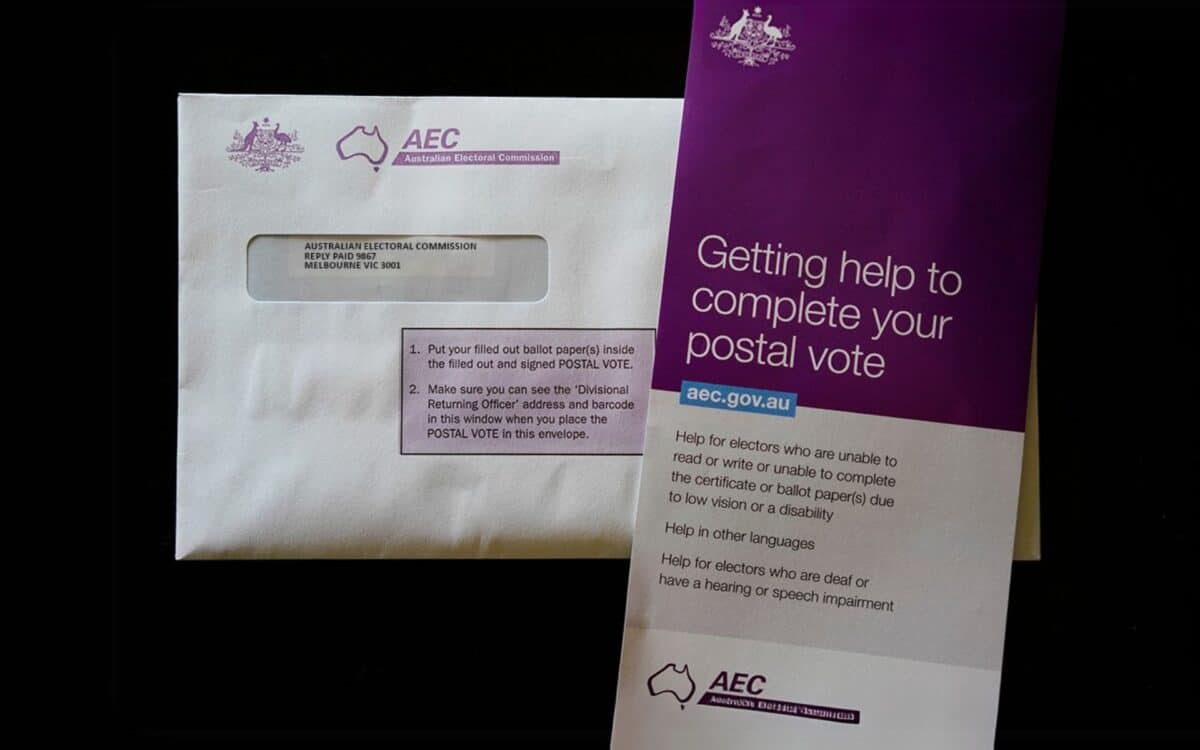Voters have received a warning about sharing personal information through websites linked to postal vote applications. The AEC is urging caution, especially as some platforms are run by political parties rather than official institutions.
According to ABC news, concerns are mounting over the potential misuse of data collected under the guise of facilitating early voting. While the practice is permitted, the distinction between party-run sites and official AEC channels is not always clear.
With campaigning intensifying ahead of the federal election, the issue of transparency and voter awareness around digital engagement has returned to the spotlight.
Parties Launch Postal Vote Campaigns Within Hours of Election Call
Just hours after the federal election was announced, major political parties began disseminating messages with links to postal vote applications. These platforms, while legally permitted, redirect users to the official Australian Electoral Commission (AEC) page but first request personal data including full name, email, mobile phone number and address.
Both Labor and the Coalition operate websites that clearly disclose their affiliation, but use generic domain names such as www.postal.vote (operated by the Liberal and National parties) and howtovote.org.au/postal (run by the Labor Party).
The postal.vote website includes the statement: “If you can’t get to a polling booth on election day, you can vote early.” Each site features a button — “apply” on the Coalition page and “continue to AEC application” on Labor’s — leading users to provide personal details before being redirected to the AEC.
Before redirection, both websites ask users to consent to their data being shared with the political party, raising concerns among electoral officials and voters alike.
Data Privacy Concerns Raised by Electoral Commission
Electoral Commissioner Jeff Pope has expressed concern that voters may believe they are dealing with the official election body when in fact their data is being collected by political entities not bound by the country’s privacy legislation.
“People should always carefully consider what they’re doing with their personal information,” he said in a statement.
“The AEC takes privacy seriously and operates under the Privacy Act … political parties don’t have to.”
Unlike the AEC, which is subject to the Privacy Act, political parties are exempt. This allows them to use collected data for campaign purposes, including targeted messaging. The AEC confirmed it does not share voter mobile numbers with any political entity.
“The AEC has shared these concerns with parliamentary committees in the past and will continue to do so in the future,” Pope added.
Repeated Complaints About Unsolicited Political Messages
Unsolicited messages encouraging voters to apply for a postal vote remain the most frequent complaint raised at federal elections. The AEC reported that such outreach typically includes a video of the candidate’s pitch and a link to the party’s postal vote portal.
Despite prior criticism, both major parties have maintained the practice. Although their sites display party affiliations, their generic branding and similarity to official channels have again raised concerns about transparency and voter confusion.
Call for Respectful Campaigning and Transparency
As the campaign enters its first full week, the AEC has appealed to candidates and parties to conduct themselves in accordance with electoral laws and in a respectful manner.
Political campaign messages and campaign workers are a critical component of a federal election – said Mr Pope.
Our experience is that in almost every instance campaigning activity adheres with the law and is done in a civil manner. We want to see this continuing to be the case in 2025.
He also reminded all candidates and communicators of the need to properly authorise all electoral material :
With so many formats of communication used for election campaigning, it is more important than ever to check the specific requirements for authorisation statements – Pope said.
As always, the AEC’s advice is that if you are in any doubt, authorise.
The AEC is the only official body where Australians can register for any form of voting, including postal ballots. The commission reiterated that it does not send unsolicited texts, and that all legitimate applications must go through its own website or services.
Voters are urged to verify that they are using official AEC platforms and to approach political correspondence with caution — particularly when prompted to share personal information through third-party websites.









